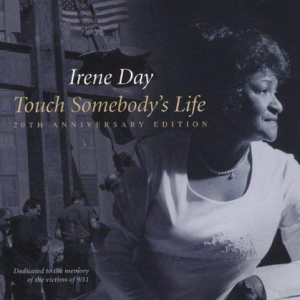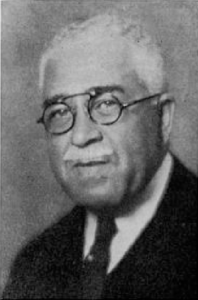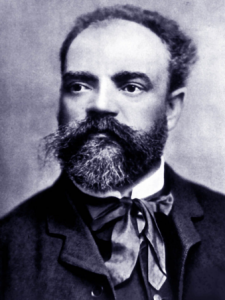A Tribute to Irene Day
By Geneva Cobb Moore
The first African American novelist to win the Nobel Prize in Literature, Toni Morrison has been acknowledged by the Swedish Academy for the literary force of her works and their visionary impact as she renders a beautifully poignant and sometimes painful picture of the historical struggle of African Americans. In her novel Sula, for example, Morrison describes the challenges facing the African American community in Ohio, after a long history of slavery, Reconstruction, segregated armies in World War I, and the epoch of Jim Crow racial politics. But Morrison also pays tribute in Sula to the black church and its musical genius, describing one character who visits the “Greater Saint Matthew’s” church where he unburdens his soul because the “tenor’s voice dress[es] him in silk.” Speaking metaphorically, Morrison captures the transformational impulse of the black church and its ability, through music as well as sermons, to inspire and catapult black congregants into a spiritual sphere where their everyday lives are changed into something exceptional and majestic.
For over forty years, the soprano Irene Day has been dressing her listeners in silk and transforming the lives of the people of East Chicago, particularly at the Antioch Baptist Church, where she has been a major soloist and has provided music on various occasions, ranging from weddings and funerals to regular, but inspirational Sunday services. Recently, she sang the Negro Spiritual “Goin’ Home” at the Homegoing Celebration of the late Rev. Dr. Vincent L. McCutcheon, Antioch’s beloved and erudite Senior Pastor. Written in the mode of the second movement of Dvorak’s classic “New World Symphony,” the song “Goin’ Home” naturally fuses elements of classical composition with the uniquely haunting and remarkable rhythm of Negro Spirituals. This is no accident, for the early twentieth-century Czech composer Antonin Dvorak created the “New World Symphony” after listening to Negro Spirituals, sung by the acclaimed Negro soloist Harry T. Burleigh, one of Dvorak’s students at the National Conservatory of Music in New York City. While Dvorak taught Burleigh composition, Burleigh impressed upon Dvorak the authenticity of African American music, particularly the Negro Spirituals, which Dvorak thought was America’s original contribution to world-class music. As a famed composer himself, Burleigh composed over 200 songs, including “Sometimes I Feel Like a Motherless Child,” “Nobody Knows the Trouble I’ve Seen,” “Go Down Moses,” and the moving and sonorous “Deep River.” With her lyrical voice, Irene Day has sung all of these songs to enraptured audiences from East Chicago to Hammond, Gary, Chicago, and beyond. Indeed, she has been the special guest of the United Steelworkers Union at its convention in Las Vegas, Nevada, and she has shared the stage with the late, great Mahalia Jackson and other famous musical personalities. Mrs. Day’s first solo album Touch Somebody’s Life, produced in 1980, and the Twentieth Anniversary Edition of that album, produced by her multi-talented son, the New Yorker Dennis Day, is now on CD and dedicated to the memory of the victims of 9/11. This album “takes us back to church,” as singer-actress Leslie Uggams proclaims.
But my witness of Mrs. Day’s talent is more personal, more immediate, and forever embedded in my long cultural memory. As a product of the former Columbus Elementary School and Roosevelt High School, and a previous active member of the Antioch Baptist Church from the age of six to the age of seventeen when I left East Chicago to attend college, I heard Mrs. Day sing almost every Sunday, under the pastorate of the late and venerable Rev. M.S. Sykes who frequently requested her to sing. After all these years, I can still see Mrs. Day in her flowing choir robe, standing at the microphone with the choir members surrounding her and humming in the background. Whether the song was “The Lord’s Prayer,” “Ave Maria,” “Precious Lord,” or “Balm in Gilead,” Mrs. Day, with her rich, gifted voice and dignified bearing, stilled the sanctuary with a holy hush and lifted us over the turbulent waters of our everyday lives and elevated us into a procession of God’s Chosen and Elect. Quietly, after the conclusion of her lyrical mission, she made her way back to her seat in the choir stand, perhaps with an idea of the rocky mountains she had managed to move that Sunday morning and the memory of the grandeur of the human spirit that she had implanted in a young school girl’s mind.
Certainly, Mrs. Day could have filled concert halls at Carnegie, the Lyric Opera House, and Lincoln Center, or, indeed, at any other great place where such renowned opera singers as Leontyne Price, Jesse Norman, and Kathleen Battle have graced audiences with their much heralded voices. Instead, God gave Mrs. Day another task and another responsibility, which did not necessarily include the trappings of wealth and fame, but certainly the awesome responsibility of making a small town and its ordinary people feel extraordinary. Perhaps this was a greater duty for a lady whose voice resonates with all that is pure, lovely, and decent in human nature, bringing out the best in each of us.
Why this tribute, now, to Mrs. Day? Unfortunately, we tend to forget our own home-grown heroes and heroines, and, sadly, we allow many of them to age, however gracefully, without ever letting them know how they touched our lives and made them immeasurably better. In these postmodern times of human fragmentation and isolation, we can quickly forget the lessons of the past and lessen significant individuals and events to the dustbins of history. We cannot allow this happen through to those individuals who serve as a link to the past and the present. On a brisk Sunday morning, not too long ago, I drove my car from Madison, Wisconsin, to East Chicago, Indiana, where I spent the afternoon with Mrs. Day, dining with her at one of the local restaurants, reminiscing about Sunday mornings and her God-given ability to touch so many lives through her music.
(Geneva Cobb Moore is an Associate Professor of English at the University of Wisconsin-Whitewater and a former Fullbright Scholar in American Literature at the University of Ghana, Legon, West Africa. She has a B.A. and M.A. in English from the University of Illinois, and a Doctor of Arts in English from the University of Michigan. She has published many articles on black women writers in books and academic journals. She is a 1964 graduate of East Chicago Roosevelt High School).

Irene Day – Touch Somebody’s Life, Soprano |
 Harry T. Burleigh, black music composer Harry T. Burleigh, black music composer |
 Antonin Dvorak, proponent of spirituals Antonin Dvorak, proponent of spirituals |